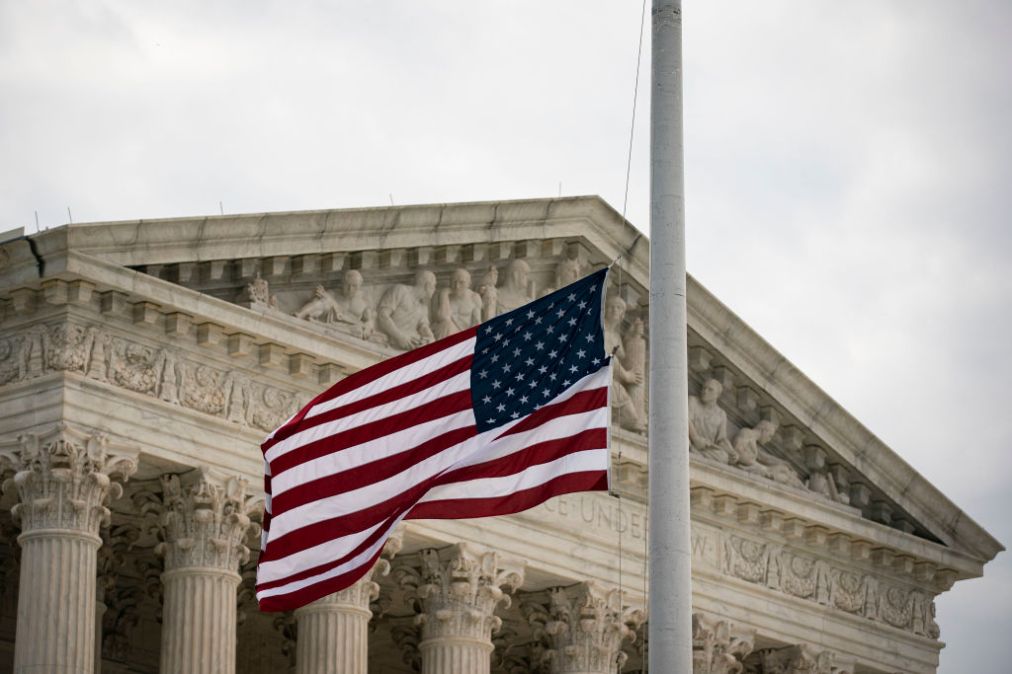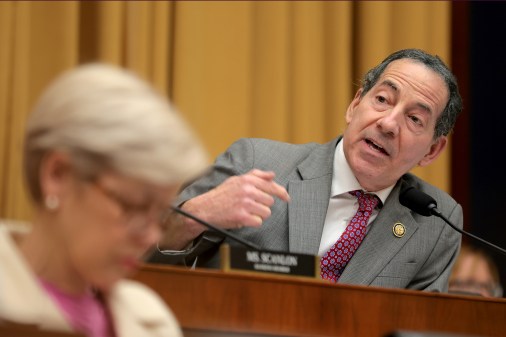Wikimedia wants the Supreme Court to hear case over NSA surveillance. Here’s what’s at stake.

The Supreme Court will meet on Friday to decide whether to review a case challenging the legality of the National Security Agency’s surveillance program that hoovers up Americans’ internet traffic as it flows in and out of the U.S
The American Civil Liberties Union and Knight First Amendment Institute filed the petition on behalf of the Wikimedia Foundation asking the high court to weigh in on the government’s stance that proceeding with a trial over the NSA’s longstanding digital monitoring efforts could reveal information harming national security. The court’s answer could have long-lasting implications for how widely the government can use the “state secrets privilege” to stop civil litigation in the name of national security over issues that have a significant bearing on individual rights.
Wikimedia’s road to the Supreme Court has been a windy one. In 2015, the organization along with several other nonprofits challenges the NSA’s use of “upstream surveillance,” the agency’s warrantless interception of online communications data as it moves through telecom infrastructure such as undersea cables. (The agency also has a “downstream” surveillance program in which it goes directly to companies such as Google and Facebook and compels them to turn over communications.)
Initially, a Maryland District Court dismissed the case but the U.S. Court of Appeals for the Fourth Circuit vacated the ruling on appeal, deciding that Wikimedia had sufficient standing to bring the case. The case went back to the lower court where the NSA invoked the state secrets privilege. This time, Wikimedia lost its appeal to the Fourth Circuit.
Such challenges to the NSA’s surveillance programs are rare since the secretive nature of the program makes it difficult for an individual to prove they were targeted. Wikimedia, based on its expansive, global user base in combination with public revelations about the upstream program made by former NSA contractor Edward Snowden and later confirmed by the government, convinced the appeals court it had standing.
The years-long legal battle between the Wikimedia Foundation, the nonprofit behind the internet encyclopedia Wikipedia, and the NSA points to a well-trotted concern from the civil liberties community that Americans lack meaningful protections from the NSA’s surveillance dragnet.
“It is past time for the Supreme Court to rein in the government’s sweeping use of secrecy to evade accountability in the courts,” said Patrick Toomey, deputy project director of the National Security Project at the ACLU and one of the attorneys representing Wikimedia. “Upstream surveillance is no secret, and the government’s own public disclosures are the proof.”
Wikimedia has argued that the surveillance program has a serious chilling effect on users around the globe, including in countries where governments restrict free expression. Wikipedia is accessed by approximately 1.7 billion unique devices each month. (Wikimedia does not collect monthly user numbers.)
“We see this kind of mass surveillance as a really significant threat to the privacy and free expression rights of Wikimedia users. It’s very much like the same reason a library couldn’t achieve its mission if its patrons had to worry about the government monitoring what books they checked out,” said James Buatti, legal director for the Wikimedia Foundation. “People can’t participate in free knowledge if they’re under constant threat of being watched.
The concern isn’t hypothetical. A 2016 study found that following the Snowden revelations in June 2013 traffic to privacy-sensitive Wikipedia pages dropped significantly. Buatti says the organization has seen comments from users in the past expressing concerns about NSA surveillance.
The Justice Department has asked the court to not review the case.
In theory, the surveillance program is designed to minimize the collection of Americans’ data. The use of the authority is also checked by a secretive court that reviews the government’s targeting certified under Section 702 of the Foreign Intelligence Surveillance Act, the authority under which the NSA launched its upstream program.
But critics say that a well-document history of abuse shows that this form of judicial review isn’t working. For instance, a 2022 report from the Office of the Director of National Intelligence disclosed that between December 2020 and November 2021 the FBI queried raw data acquired through 702 on up to 3.4 million U.S. persons — nearly twice that of the year before. A more recent report detailed how the FBI used the same technique to unlawfully search for data on a U.S. congressman and a local political party. In 2020, the Justice Department acknowledged that the FBI misstated and omitted evidence in applications to surveil a former Trump campaign associate Carter Page. A subsequent inspector general report found such omissions to be recurrent.
“As we’ve seen time and again, the information that the government presents to the FISA court in these one-sided hearings is often inaccurate, misleading or incomplete,” said Elizabeth Goitein, senior director for the Liberty and National Security Program at the Brennan Center for Justice, which filed an amicus brief in support of Wikimedia. “And so the FISA court is apt to come to the wrong conclusions because it’s being given bad information.”
The Supreme Court also issued an opinion last year that the state secrets privilege trumped the provision of FISA allowing for the review of surveillance under the act. If the court decides that the same privilege can be used to quash civil cases, the results could be disastrous, critics say.
“If the government can claim state secrets and have a case dismissed simply by saying that any hypothetical defense it raises will involve secret information, it’s going to be able to make that claim in any case involving national security policies, and the courts are going to defer to that claim,” said Goitein. “It will essentially be saying that national security policies in this country are not subject to judicial review and that would be incredibly dangerous and put all of our constitutional rights in jeopardy.”
The decision arrives in the midst of a brewing debate in Congress over whether to renew Section 702. The U.S. intelligence community has already made the case for renewing the powers. NSA Director and head of U.S. Cyber Command Gen. Paul Nakasone urged Congress to renew the authority at a January meeting of the Privacy and Civil Liberties Oversight Board, claiming that the U.S. government has “saved lives” using intelligence from the program.
Members of both parties have signaled intent to introduce legislation to reform the authority later this year. But the path to renewal is likely to be bumpy. Some conservatives have expressed a desire to scrap the program entirely. The PCLOB is expected to release a report this spring with its own recommendations.
Correction 2/22/23: An earlier version of this article misstated that Wikipedia is visited monthly by 1.7 billion users. The website is accessed by 1.7 billion unique devices per month.





